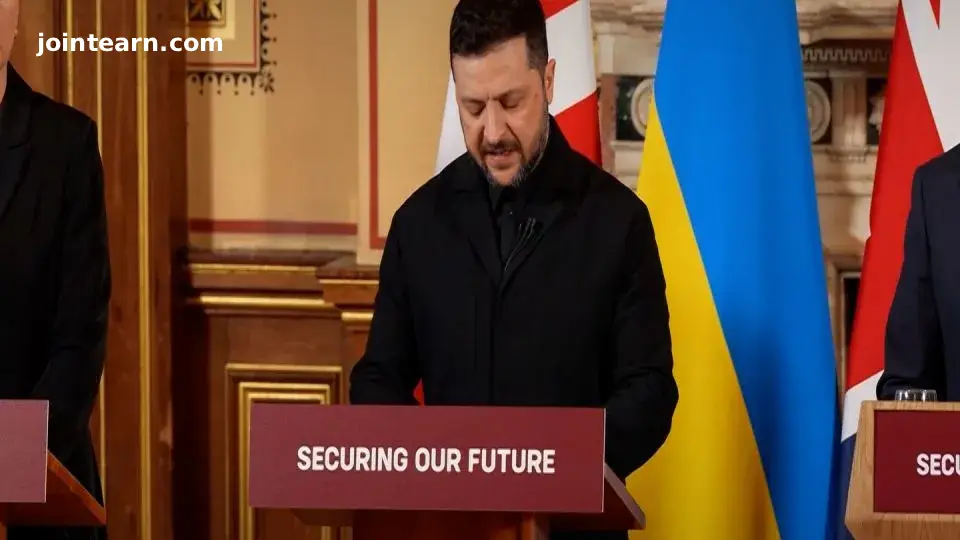
London, United Kingdom — European leaders reaffirmed their commitment to supporting Ukraine and tightening the economic noose on Russia as members of the “Coalition of the Willing” convened in London on Friday. The coalition, which includes key NATO allies, pledged to expand sanctions, strengthen military coordination, and sustain financial assistance to Kyiv amid Russia’s unrelenting aggression.
The summit came as US President Donald Trump announced sweeping sanctions on Rosneft and Lukoil, Russia’s largest oil companies. The European Union swiftly followed suit, unveiling additional sanctions and agreeing to finance Ukraine’s defense and reconstruction efforts for the next two years.
Europe Steps Up: A Unified Front Against Russia
As Russian airstrikes continued to devastate Ukrainian cities, European leaders emphasized that defending Ukraine’s sovereignty is vital to the continent’s own security.
“Ukraine’s future is our future,” declared UK Prime Minister Keir Starmer. “What happens in the weeks and months ahead will determine the security of the United Kingdom and all our allies across NATO and beyond.”
Starmer confirmed that the UK became the first nation to sanction all Russian oil majors, reinforcing its leadership in Europe’s united response. He called on other countries to “reduce dependencies” on Russian energy and to “incentivize third countries to stop buying these tainted resources.”
Sanctions Strategy: Coordinating Economic Pressure
The coalition’s coordinated approach is designed to strike at the heart of Russia’s energy-dependent economy — the lifeblood of the Kremlin’s war machine.
“The combined impact of the US, UK, and EU sanctions shows our clear unity in supporting Ukraine and isolating Russia economically,” Starmer said.
Ukrainian President Volodymyr Zelensky, attending the summit alongside NATO Secretary-General Mark Rutte, hailed the sanctions as a “big step” toward accountability.
“Diplomacy matters only when it leads to real decisions,” Zelensky stated. “The essential ingredients are pressure — sanctions, long-range capabilities, political accountability, and real actions on Russian assets.”
Zelensky has repeatedly urged Western partners to supply long-range Tomahawk missiles to enable Ukraine to strike deep within Russia’s military infrastructure — requests that were denied in Washington but remain under consideration in Europe.
War Realities: Ongoing Strikes and Civilian Toll
As leaders met in London, Russian missile strikes continued across Ukraine. Local officials reported three civilian deaths in Kherson, where residential areas were shelled early Friday morning.
“Long-range capability directly strengthens democracy,” Zelensky argued. “The more losses Putin suffers on his own territory, the fewer assaults he can carry out, and the faster he will agree to meaningful diplomacy.”
NATO’s Mark Rutte echoed the urgency of this approach.
“Putin is running out of money, troops, and ideas,” Rutte asserted. “Now is the right time to increase pressure so we can achieve a fair and lasting peace for Ukraine.”
The Dutch leader praised Trump’s latest sanctions as “a decisive move that will starve Russia’s war economy” and prove that “the United States remains absolutely committed to ending this war.”
Diplomatic Challenges and Aborted Talks
The coalition’s renewed unity comes after Trump canceled a planned summit with Vladimir Putin in Budapest, citing Russia’s unwillingness to engage in “serious negotiations.”
The two leaders last met in Alaska over the summer, where talks stalled amid disagreements on ceasefire terms and territorial concessions.
“The President had not seen enough interest from Russia in moving the ball forward toward peace,” White House press secretary Karoline Leavitt told CNN.
In an unexpected twist, Kirill Dmitriev, Russia’s top economic envoy, arrived in Washington for separate discussions on US–Russia relations, a move he claimed had been “planned based on an invitation from the US side.”
European Resolve: No Retreat, No Compromise
The London summit closed with a clear message: Europe will not waver in its support for Ukraine, regardless of how long the war drags on.
“Putin’s strategy has been to wait for us to give up,” said Danish Prime Minister Mette Frederiksen. “But this will never happen.”
Dutch Prime Minister Dick Schoof underscored that economic pressure remains the coalition’s strongest weapon.
“The only way to persuade Putin to engage in real talks is through relentless economic pressure,” Schoof said.
The coalition’s joint declaration reaffirmed commitments to:
- Maintain and expand sanctions on Russian oil, gas, and financial sectors.
- Support Ukraine’s reconstruction through long-term EU and NATO funding.
- Enhance military coordination to defend Ukrainian sovereignty.
- Pursue accountability for Russian war crimes through international courts.
A Defining Moment for Europe and Ukraine
As the war enters another brutal winter, the coalition’s message is clear: the fate of Ukraine is inseparable from Europe’s own stability.
“Every barrel of sanctioned oil, every frozen Russian asset, and every Ukrainian victory on the battlefield strengthens global democracy,” Rutte said.
From London to Kyiv, the sentiment was shared — Ukraine’s fight is Europe’s fight, and the coming months will test whether sanctions and solidarity can truly turn the tide of war.


Leave a Reply